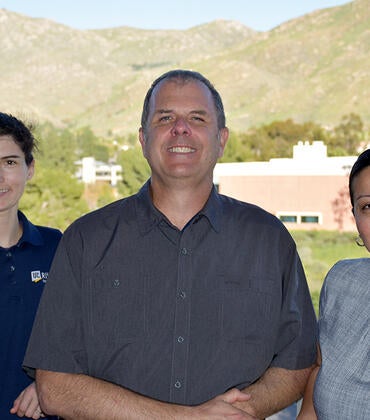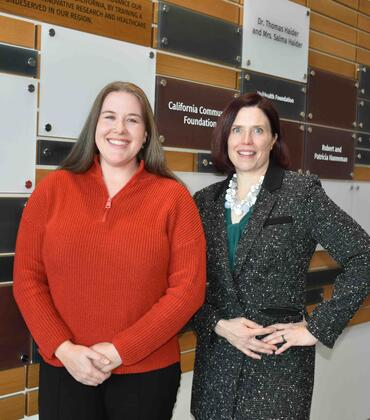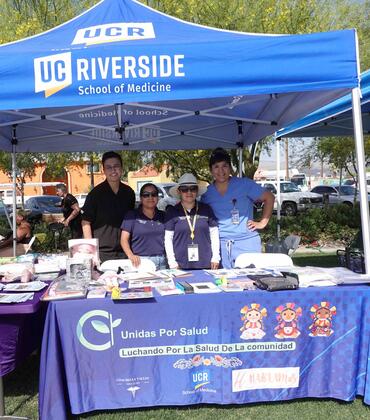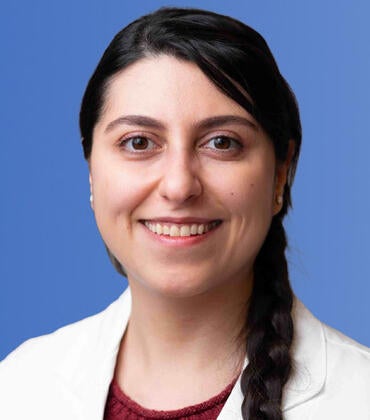
On Monday, the UCR School of Medicine hosted an event to recognize the J.W. Vines Medical Society’s efforts to increase diversity among medical students as well as the organization's influence on the SOM and its community-based mission.
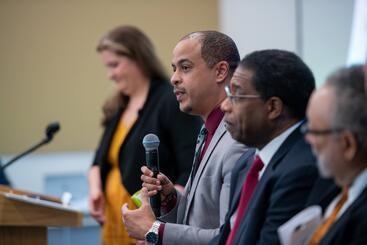
The event, “A Celebration of the J.W. Vines Medical Society and its Impact on the UCR School of Medicine,” featured current and past leadership from UC Riverside, SOM, and the Vines Society as speakers and as participants on a seven-person panel that shared the organization's history, challenges, and successes.
“We’re here to…thank the Vines Society for their advocacy,” said Kim Wilcox, PhD, chancellor of UC Riverside. “Without that, we could well imagine we wouldn’t even have a medical school.”
The organizations was “instrumental in shaping the mission of the medical school to ensure that it is one of training a diverse physician and biomedical scientist workforce and developing programs and clinical care and research to serve the people of the Inland Empire,” added Deborah Deas, MD, MPH, the vice chancellor for health sciences and the Mark and Pam Rubin dean of the School of Medicine. “We are so pleased that at UCR School of Medicine, we are carrying out this mission as it was developed from its inception for the medical school.”
The Vines Society was founded in 1987 to provide educational opportunities for African American students pursuing health science careers, with the goal of addressing health challenges faced by African American people in the Inland Empire. Part of these efforts, which panelists recounted, included lobbying the University of California and the California legislature to create the UCR SOM to help improve access to healthcare in the region. The organization also influenced the SOM’s mission of training a diverse workforce of physicians to serve the area.
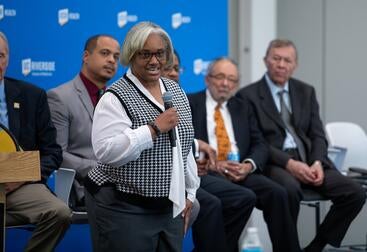
Event panelists included Ernest Levister, Jr., MD and Ancel Rogers, MD, both past presidents of the Vines Society; Thomas Haider, MD, a member of the UCR Board of Trustees and SOM Board of Advisors; Craig Byus, PhD, former dean and program director for the Division of Biomedical Sciences; Neal Schiller, PhD, the former senior associate dean and chair of biomedical sciences; Teresa Cofield, director of Pathway Programs at the SOM; and Michael Nduati, MD, chief academic officer of Universal Health Services Acute Care Division and associate clinical professor of health sciences. The panel discussion was moderated by Denise Martinez, MD, associate dean of diversity, equity, and inclusion at the UCR SOM.
The event “was fantastic and I think it helps to show what community activity can do to affect change,” Levister said.
“I think the community, not only outside of the medical school but within the medical school, had no idea the impact that the Vines Medical Society had,” added Leita Harris, MD, the organization's current president. “I'm just happy that…people were willing to go ahead and say yes, this is something that's long overdue and people do need to know.”
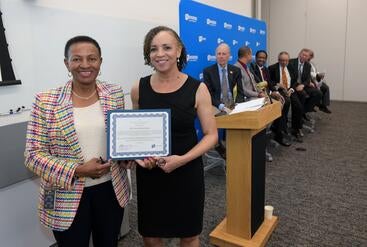
Toward the end of the event, Deas announced that in honor of the organization, the SOM would rename its annual diversity, equity, and inclusion colloquium as the J.W. Vines Diversity Equity Inclusion Colloquium.
The new name “demonstrates that they made a critical impact and it gives honor to what they have done, and this will be at the School of Medicine in perpetuity,” Deas said.
“That was a surprise, but I think it's nice that they found a way to honor [it] in a long-lasting way,” said Harris.
“I was overwhelmed,” Levister added. “It made my day.”
Levister emphasized the importance in the years to come of the SOM continuing to adhere to its mission. “The population of the Inland Empire will lose if there's mission drift,” he said. “As long as we do that, it's going to be successful. Everything else will fall into place.”
